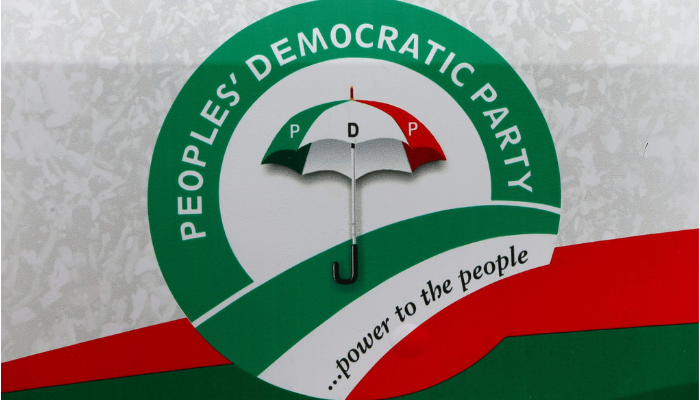
The appellant (PDP), in an appeal hinged on 25 grounds, asked the appellate court to set aside the judgment of the lower court delivered on July 4, 2024.
Recall that Justice Inyang Ekwo of the Federal High Court, Abuja, had declared the PDP primary election held on February 22 in Edo State as invalid.
Justice Ekwo held that the PDP did not comply with the relevant provisions of its constitution or the electoral guidelines for primary elections when it excluded 378 elected ward delegates from participating in the primary election.
The trial judge held that this act itself is against the provision of Article 50(3) of the party’s constitution.
He further declared that it is a legal requirement that political parties must obey their constitution, guidelines, and regulations.
Justice Ekwo said, “The failure to comply with the Electoral Guidelines is not different from the effect of non-compliance with the constitution of the political party or noncompliance with the provisions of the Electoral Act 2022.
“The decision of the second defendant (PDP) not to include the plaintiffs in the governorship primaries for which they were elected at the ward congress was arbitrarily wrong.
“Ward congresses are to be held in accordance with the law, the party’s constitution, and Electoral Guidelines.
“After being held, they cannot be cancelled except in the manner provided in the Electoral Act 2022, the party’s constitution, and electoral guidelines.
“Consequently, I find that the case of the plaintiffs succeeds on the merits upon a preponderance of evidence as required by law.
“A declaration is hereby made that by virtue of the provisions of Article 50 (3) of the constitution of the second defendant (as amended in 2017), the plaintiffs, together with the other lawfully elected delegates whose names and election results appear on Exhibits BID 8A to 8L herein, are the lawfully elected ward congress delegates in their respective wards and by virtue of which the defendants cannot exclude them from participating as 3 ad-hoc ward delegates at the Governorship primary election of Edo State slated for the 22nd of February 2024 or any other date.
“An order is hereby made directing the defendants, who are bound by the provisions of Section 82 of the Electoral Act 2022 and Article 50(3) of the second defendant’s constitution (as amended in 2017), to abide by the outcome of the three ad-hoc delegates ward congress of February 4, 2024, at which the plaintiffs and the other 378 delegates, whose names and election results appear on Exhibits BID 8A to 8L, were elected, and to allow the plaintiffs and the 375 other lawfully elected delegates to participate in the primary election of February 22, 2024.
“An order of mandatory injunction is hereby made restraining the first, second, and third defendants from unlawfully excluding the plaintiffs and the other lawfully elected delegates whose names and election results appear on Exhibits BID 8A to 8L herein from participating as 3 ad-hoc ward delegates in the governorship election primaries of the second defendant slated for the 22nd of February 2024 or any other date.”
PDP, in the appeal dated July 9, marked CA/ABJ/CV/2024 and filed through their lawyer Adeyemi Ajibade (SAN), argued that the decision of the trial court is against the weight of evidence.
The respondents in the appeal are Kelvin Mohammed, Gabriel Okoduwa, Ederaho Osagie (for themselves and on behalf of the 378 ad-hoc delegates), Independent National Electoral Commission, The National Secretary of the PDP, and The Vice Chairman, PDP South-South, as 1st to 6th respondents respectively.
The appellant said, “The lower court erred in law when it granted reliefs 2, 3, and 4 sought by the 1st to 3rd respondents”.
The political party further contended that there was no basis for the trial court to have arrived at its decision.
The appellant said that on February 4, it conducted a three-man ad-hoc ward congress across the 18 local governments in Edo State, and the 1st to 3rd respondents did not participate and were not among the persons who emerged as elected delegates.
The party said its candidate (Asue Ighodalo) was duly elected by the ad-hoc delegates who participated in its primary election.
PDP also said the court misapprehended their case as the lower court wrongly evaluated their evidence.
It argued that “The lower court judgment is unsupported in law.”
It contended that they did not breach any of the applicable laws and “the respondents’ relief two, being declaratory, ought to have been supported by cogent and compelling evidence.”
On these grounds, they sought the following reliefs: “An order allowing the appeal, an order setting aside the judgment of the lower court, and an order striking out or dismissing the entire suit for want of jurisdiction.”





